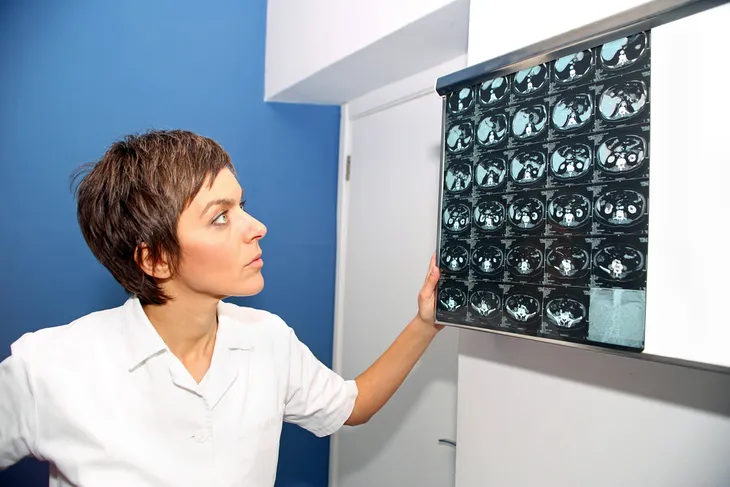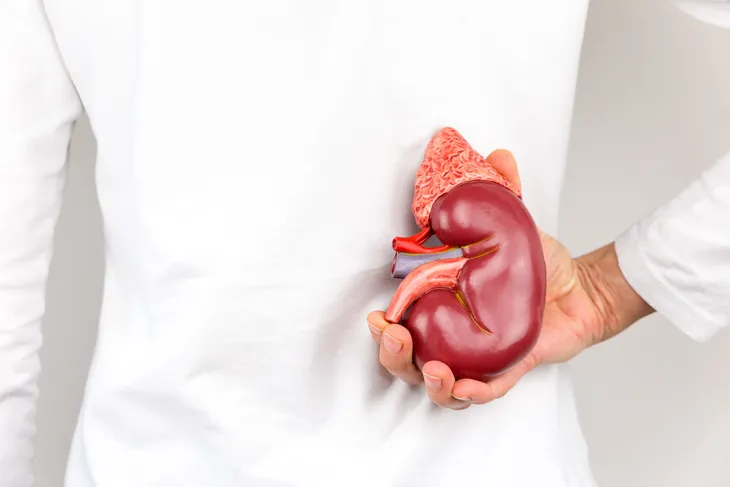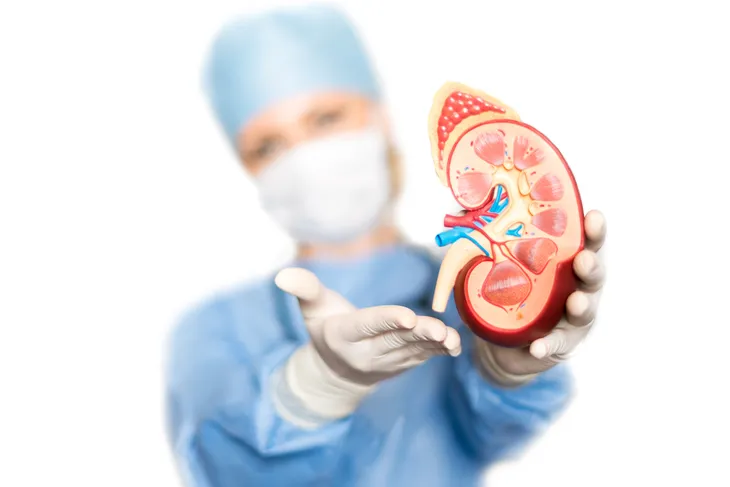This is a condition that strikes before birth. The National Institute of Diabetes and Digestive and Kidney Diseases explains it occurs when the internal structures of the kidneys don’t develop properly in a fetus while in the womb.
The condition affects how urine flows from the kidneys, as the kidney’s tubules that collect urine don’t fully grow. “Urine that would normally flow through the tubules has nowhere to go,” explains the source. This can obviously lead to a number of problems. So, let’s take a look at six facts about this kidney dysplasia (also known as renal dysplasia and multicystic dysplastic kidney), and how the medical community is addressing it…
Cysts Form
The outcome of kidney dysplasia from a structural standpoint is that normal kidney tissue is replaced by fluid-filled sacs (cysts). This is because the urine that should be filtered out of the body via the kidney’s tubules has nowhere to go and pools inside the kidney.
The end result is that the cysts prevent the kidney from functioning, notes the National Institute of Diabetes and Digestive and Kidney Diseases, which is why most functioning patients with the health problem only have one affected kidney.
It Usually Affects One Kidney
MedicineNet.com explains that, while dysplasia can affect both kidneys during development, it most commonly affects only one side. “A baby with one working kidney can grow normally and has few, if any, health problems,” explains the source.
However, it adds that unborn babies that have dysplasia in both kidneys often don’t survive the pregnancy. Those who do make it into the world will need medical interventions, such as dialysis and even a kidney transplant early in life, adds the source.
There May Not Be Obvious Symptoms
KidneyHealthcare.com explains that many babies and children with dysplasia affecting only one kidney won’t show any signs of a health problem, and lead “normal, healthy lives.”
Usually, the only way an unborn baby is found to have kidney dysplasia is during a routine ultrasound during pregnancy, explains the source. “Kidney dysplasia, however, may not always be detected before the baby is born,” adds the source. An enlarged kidney may be found as an indicator of this problem if the child visits the doctor with a urinary tract infection (UTI) or another health issue.
High Blood Pressure Can Occur
While we’ve already said that most children with renal dysplasia affecting only one kidney often have no symptoms, they can be at risk for developing higher blood pressure (hypertension) later in life, which also doesn’t usually have obvious signs but can cause serious health problems if left unchecked.
As infoKID.org.uk points out, hypertension can occur in children, as well as adults, and it can be off the radar until it’s too late. While hypertension is rare in children, notes the source, it may be wise to monitor his/her blood pressure if you know your child has kidney dysplasia.
There are Risk Factors
MedicineNet.com explains that the risk of an unborn child developing dysplasia can be tied to the mother’s exposure to certain drugs. “Pregnant women should talk with their healthcare providers before taking any medicine during their pregnancy,” urges the source. Drugs commonly associated with this condition include those that treat seizures and blood pressure.
There can be genetic factors at play too. “Several genetic syndromes that affect other body systems may include kidney dysplasia as one part of the syndrome,” says MedicineNet. It adds that a baby with kidney dysplasia can sometimes also have problems affecting their digestive tract, nervous system, heart/blood vessels, muscles or other structures of the urinary tract.
There are Limited Treatments
The Urology Care Foundation says the treatment of renal dysplasia focuses on managing the symptoms, not eliminating them. As mentioned before, hypertension can be associated with the disease, so regular blood pressure checks should be part of the health care regime.
Other tests may include kidney function tests and testing urine for protein levels, adds the source. In the case of a UTI triggered by kidney dysplasia, antibiotics can be used for management. In extreme cases, the affected kidney can be removed if it’s causing pain, high blood pressure or the ultrasound is abnormal. But your health team will likely consider all angles beforehand.









